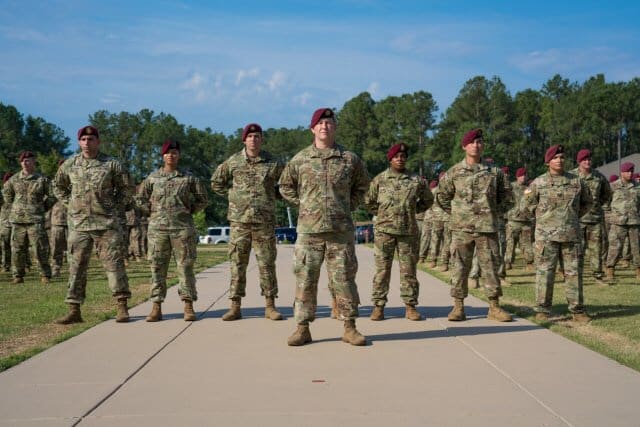
FORT BRAGG, N.C. (USASOC News Service) — More than 200 Psychological Operations noncommissioned officers proudly stood before their Families, friends and leaders during a promotion ceremony larger than any other in Army Special Operations history, May 31, 2019. About 100 additional promotees will pin, but were unable to attend the Fort Bragg ceremony because they are currently deployed or in training.
PSYOP Soldiers complete extensive training and education in human dynamics, influence theory, psychology, sociology, language, culture, and politics. PSYOP NCOs are expected to operate successfully in austere environments, executing national strategic and theater-level policies and decisions with limited supervision. They are expected to interact with U.S. ambassadors, senior country team members, and host nation ministerial-level officials on a daily basis. The importance and sensitivity of their missions warranted a grade plate change for the PSYOP Regiment’s enlisted ranks to ensure the NCOs’ ranks corresponded with the level of responsibility they assume while downrange.
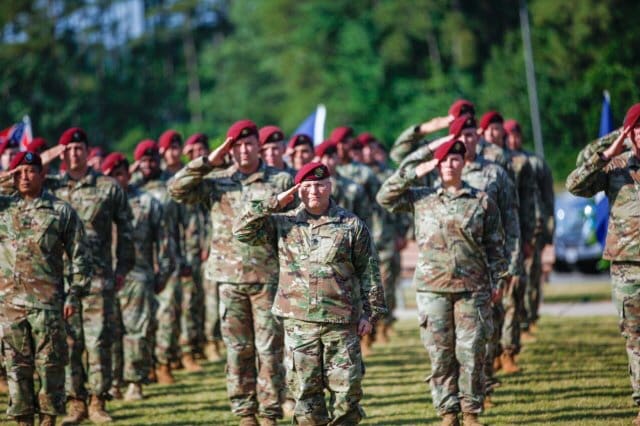
Army and ARSOF leaders at multiple echelons worked for more than a year to achieve the grade plate change that would later create additional positions for the newly promoted staff sergeants and sergeants first class. The current organizational structure did not allow for additional NCOs of these ranks, resulting in a stagnation at the junior NCO levels. However, the dedication of these leaders resulted in the change of 336 sergeant positions to staff sergeant, and 114 staff sergeant positions to sergeant first class.
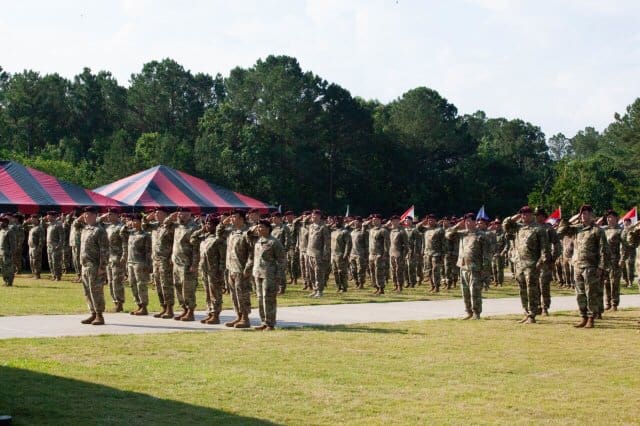
The grade plate change made it possible for these NCOs to finally pin after years of waiting – more than a decade in some cases. However, each promotee had already met every requirement for promotion; they had completed the appropriate level of professional military education and met the time in grade and service requirements, sometimes multiple times over. Instead of reclassifying to a different military occupational specialty or leaving the Army altogether, they were committed to their craft, to their teammates, and to the ARSOF Family.
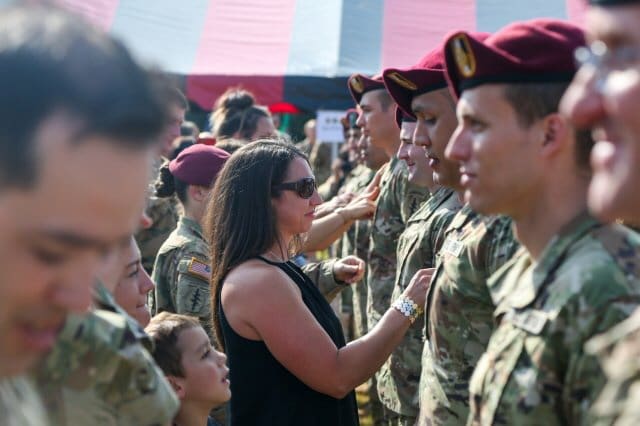
Newly-promoted Staff Sgt. Gabrielle Phillip is one such NCO. Phillip has been a PSYOP Soldier since entering the Army in 2009 and was a sergeant for almost eight years. She said job satisfaction and quality leadership are what kept her in the career field for so long without the guarantee of upward advancement.
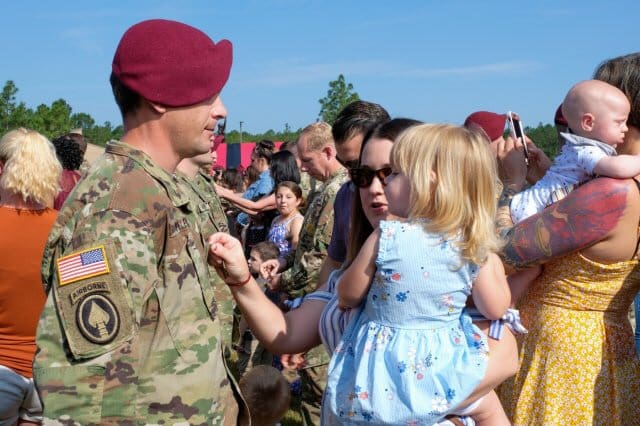
“I love PSYOP,” she said. “I love the job, I love what we do. I’ve had the pleasure of working with leaders who’ve always pushed me so even though I might have had the rank of sergeant, I never felt like one. I always felt like I could grow. I always felt like I could do new things, try new things and just accept responsibility. I love PSYOP so that’s what kept me around.”
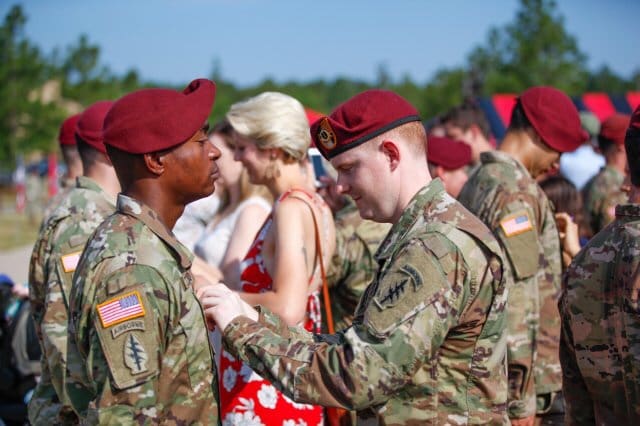
While most promotees were pinned by Family members or friends, Phillip was among the few selected to be pinned by Maj. Gen. John Deedrick, 1st Special Forces Command (Airborne) commanding general. During the ceremony, Deedrick emphasized the fact that these NCOs have patiently waited for this well-deserved day to come while remaining dedicated members of the PSYOP Regiment.
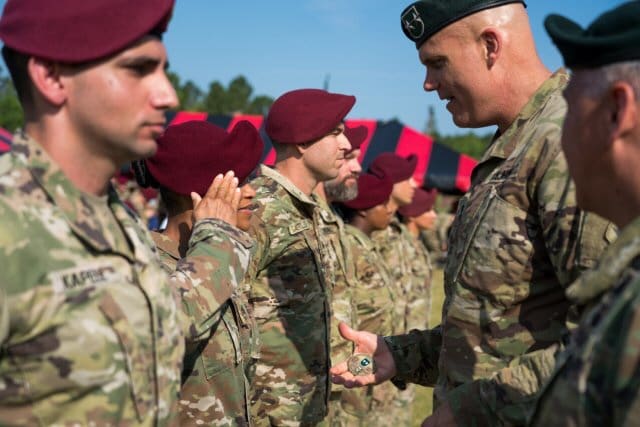
“I think it moves the bar on what selfless service, what patriotism, and what fidelity really mean,” Deedrick said. “And I want to thank you all personally for your steadfastness, for your commitment to this nation and to this regiment as you have shouldered that burden and gone on and conducted your mission in an incredible way.”
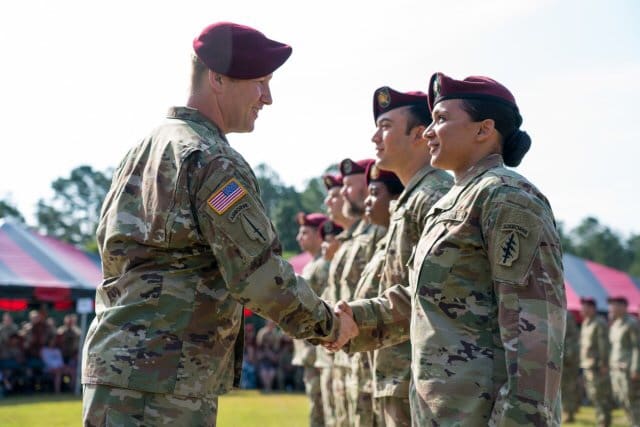
He added, “They’ve put in the work, they’ve put in the time. They have the experience, they have the education and they are ready to operate at the next level. I couldn’t be happier for all of you standing on this field.”
By SFC Kissta DiGregorio


Aha! So now Sergeants won’t have to double up in the barracks anymore.
So what is the root cause of this problem? The army’s promotion system?
Basically, yes.
Too many soldiers went 37F. and at the end of their training they pin E5. Of course, there wasn’t enough room for upward mobility, so the bottleneck just kept getting bigger.
If they didn’t need these positions, why increase the grades? It’s nice to promote people, but why increase the costs to the tax payer if it’s unnecessary.